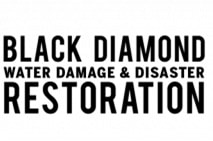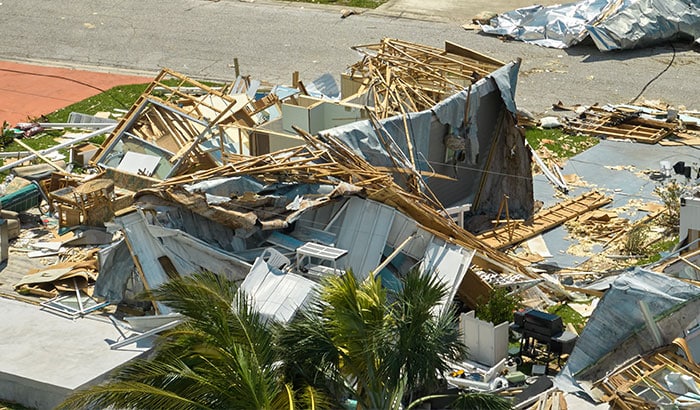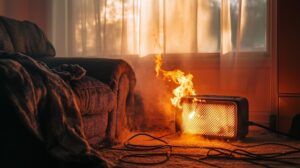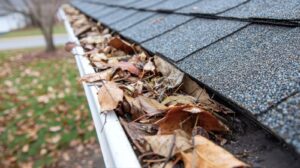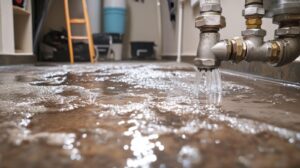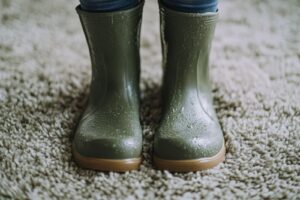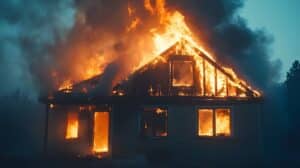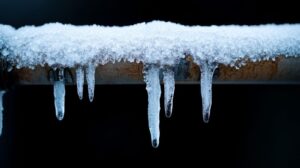The thought of natural disasters like earthquakes, floods, hurricanes, and tornadoes is enough to scare anyone. No matter how prepared you are, there’s no way of knowing exactly how much cleanup will be involved until the disaster is over.
But what you can know is how natural disaster cleanup works. That way, no matter how minor or vast the cleanup might be, you’ll know what to expect and feel prepared.
What Do You Need to Prepare for a Natural Disaster?
Preparing for a natural disaster can decrease its impact on you. The best way to prepare for a natural disaster is by packing an emergency preparedness kit.
Every kit should include drinking water, nonperishable food, a manual can opener, flashlights and extra batteries, a first aid kit, a battery-powered radio, sanitation supplies like toilet paper, soap, disinfectants, trash bags, and a local map.
For drinking water, we recommend one gallon per person daily. A family of four should have four gallons of water per day multiplied by how many days you think you might need it.
You might also need baby food, bottles, diapers, pet food, prescription medications, extra glasses or contact lenses, dry clothes, and blankets.
These supplies will ensure that no one goes hungry or thirsty or without necessities while you’re waiting for help.
What You Shouldn’t Do During a Natural Disaster
As scary as it might seem, you need to get through the worst of the disaster. Whether you’re facing a hurricane, tornado, or earthquake, there are things you should avoid doing to stay safe.
We recommend avoiding the following:
- Running outside or anywhere else while there are high winds or shaking
- Standing in a doorway
- Getting into the triangle of life where you “drop, cover, and hold on” — it’s been proven ineffective
- Turning on the gas after turning it off
- Using matches, lighters, barbeques, or electrical appliances when there could be gas leaks
Additionally, keep these myths in mind to keep yourself safe:
- Buildings don’t always collapse.
- Not all furniture gets crushed when buildings collapse.
- It’s not a good idea to move to a better spot while there’s strong shaking.
- Don’t get out of your car or onto the ground next to it, as you could get crushed by your vehicle or other drivers who can’t see you.
How Long Does It Take to Clean Up After a Natural Disaster?
There’s no single answer to this question because it depends on how severe the natural disaster was. Your home could be in the most heavily hit area, or you might have lucked out and been on the outskirts. Better yet, you might have been completely unaffected.
Disaster cleanup can last anywhere from a day to weeks or months. Exercising caution is the most important aspect of disaster cleanup since the cleanup crew could be exposed to chemicals, contaminated flood water, downed power lines, fallen trees, and debris. For that reason, personal protective equipment is needed.
Once the damage has been assessed and everyone is armed with PPE, cleanup can begin.
What Do You Need to Clean Up After an Earthquake?
It doesn’t take much from an earthquake to cause severe damage to your home. Even a magnitude of 1 or 2 on the Richter scale is enough to cause gas leaks, fire hazards, and structural damage.
After an earthquake, it’s a good idea to walk around your property to see if there’s a gas smell. Turn off the outside main valve if you smell gas or see a broken line. Keep matches far away since this could cause an explosion.
Checking for fire hazards should be your next step, followed by securing any part of your home’s structure that’s been damaged. Inspecting your home is a good way to protect yourself until help can come.
What Do You Need to Clean Up After a Tornado?
Post-disaster tornado cleanup often involves heavy debris from buildings, which you shouldn’t try to remove on your own. This debris is often hefty and filled with nails and other sharp objects like broken glass that could severely injure you.
You’ll need to be cautious around potential musculoskeletal and electrical hazards, exposure to carbon monoxide, heat stress, motor vehicle, and large machinery accidents, hazardous materials, fire, and confined spaces.
Before you begin debris removal, you’ll want to dress for the job — a long-sleeved shirt, long pants, work gloves, and thick-soled shoes.
What Do You Need to Clean Up After a Hurricane?
Keep in mind that your home could be full of fallen debris, and the outside could be blocked by power lines, gas lines, and large tree limbs. So, please don’t rush to return to it the moment the hurricane is over.
Please wait until it’s been declared safe, and be sure to wear protective gear, so you don’t get injured. You’ll want flashlights in case the electricity is out and N95 masks and gloves to protect yourself from bacteria and mold.
What Supplies Do Natural Disaster Victims Need Most?
The necessary supplies for natural disaster cleanup will vary based on the type of disaster, but the following supplies are almost always recommended.
We recommend cleaning supplies like:
- air fresheners
- bleach
- household cleaner
- clothes pins
- laundry detergent
- dish soap
- latex gloves
- work gloves
- N95 masks
- scouring pads
- scrub brushes
- sponges
- cleaning towels
- heavy-duty trash bags
We recommend tools like axes, chainsaws, hack saws, hammers, nails, pliers, screwdrivers, wrenches, and ropes.
Your first aid kit should include aspirin, adhesive bandages, a first aid booklet, gauze, sterile gloves, antibiotic and burn relief ointments, soap, SPF 30 sunscreen, a thermometer, and antibiotic wipes.
Having food, water, and snacks like breakfast cereal, granola bars, cookies, crackers, jerky, dry food, canned vegetables, nut butter, trail mix, infant formula, baby and toddler food, hard candy, vitamins, and dry foods for your pets.
We also recommend having a can opener, metal pans, cooking utensils, aluminum foil, plastic wrap and utensils, paper plates and napkins, storage bags, paper towels, garbage bags, and an ice chest.
For personal hygiene, we recommend alcohol-based hand sanitizer, soap, a toothbrush, toothpaste, a bath towel, and a washcloth. You should have one of each for every member of your family.
Having all these supplies on hand after a natural disaster will help you get through the aftermath.
Black Diamond Restoration
Do you live in an area where there was a natural disaster? Whether it was a hurricane, earthquake, or tornado, Black Diamond Restoration is here to help you clean up and get back to normal life.
We have all tools and supplies to repair and restore your home. Natural disaster cleanup is no joke, so leave it to the professionals! Call us at 801.512.4194 for more information.
toto slot